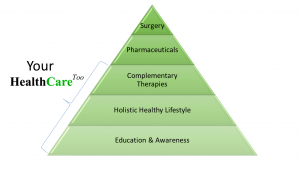Gut Health
It is amazing that such a complex “rain forest” exists inside our gut. Each person has his / her own internal ecosystem. However, we seldom hear of physicians prescribing medication for “gut health” for obesity.
For the 35 percent of American adults who do daily battle with obesity, the main causes of their condition are all too familiar: an unhealthy diet, a sedentary lifestyle and perhaps some unlucky genes. In recent years, however, researchers have become increasingly convinced that important hidden players literally lurk in human bowels: billions on billions of gut microbes.
New evidence indicates that gut bacteria alter the way we store fat, how we balance levels of glucose in the blood, and how we respond to hormones that make us feel hungry or full. The wrong mix of microbes, it seems, can help set the stage for obesity and diabetes from the moment of birth.
Source: How Gut Bacteria Help Make Us Fat and Thin
For decades patients have used proton-pump inhibitor drugs (PPIs) and H2 blockers. There was science behind their ability to affect stomach acid levels, quite often to the patient’s benefit. Patients and physicians rarely questioned that science. In light of the new research into complex interactions of gut microorganisms, perhaps there should have been more questions.
Billions and Billions
There are literally billions of gut microorganisms in any person. Each person has a unique mixture of gut microorganisms. That mixture started at birth and continued to develop through interactions with the environment. It is a tall order just to inventory all the microbes. It is even a greater challenge to understand the “job” of each microbe. Now, add all the interactions among the microbes and we have challenge worthy of the best minds in science and data analytics.
The next step in gut health seems to be underway. Scientists are dashing off to labs where they will identify and classify. Researchers are looking for the best ways to introduce the “right” microbes into our guts. Fecal transplant shows promise. So does swabbing newborns delivered by C-Section with the mother’s vaginal fluid. While there is nothing wrong with the exploration (expect maybe the fecal transfer, yuck) we should not overlook diet.
As the article points out, “Diet is an important factor in shaping the gut ecosystem. A diet of highly processed foods, for example, has been linked to a less diverse gut community in people.” It will be less expensive and much faster, if we help people eat properly. There is little need for high-priced pharmaceuticals or “fecal transplant” procedures before we attempt to improve diet. Getting rid of high fructose corn syrup and other additives is a great start. Reducing consumer exposure to and consumption of processed foods will provide huge benefits. Remember that 80%+ of our health is non-clinical… let’s start there now while scientists pursue the research.
Our Model

The HealthCare Too model provides for a holistic approach to health. We look for articles and knowledge to help consumers and their care teams make holistic health decisions and also shop for the best deals in holistic health so you can find them here! We appreciate the value of surgery and pharmaceuticals but want to make more pathways available for your HealthCare Too.




